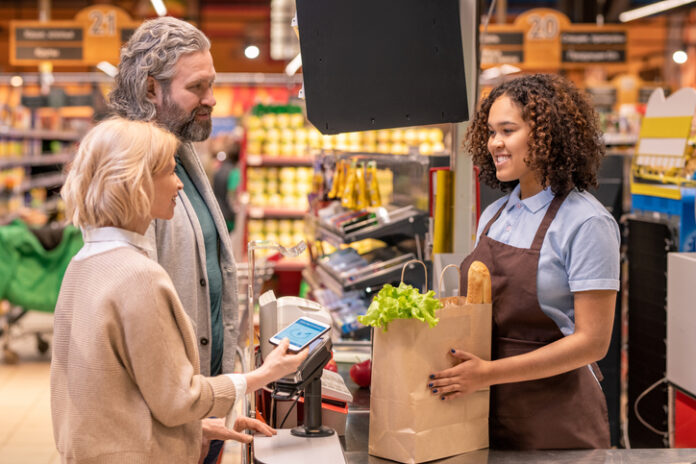Berkeley, California became the first city in the United States to ban what it deems junk food from checkout lines in grocery stores.
The Berkeley City Council passed the “healthy checkout” ordinance unanimously on September 22. The ordinance takes effect March 2021 and bans large grocery stores in the California city from selling food and beverages deemed unhealthy in a 3-foot radius from the checkout.
Items containing more than 5 grams of added sugars or over 250 milligrams of sodium per serving, like chips, candy bars, sodas or other processed foods will be prohibited from being sold anywhere near the checkout register. Grocers would be free to sell alternatives such as pita chips, hummus, protein bars, and milk.
A total of 25 retailers throughout the city, including stores such as Safeway, Whole Foods, and Trader Joes, will be subjected to the ordinance. Councilmember Kate Harrison, a co-sponsor of the ordinance, told FOX Business September 24 that the Council has discovered that the law enforces good behavioral economics and facilitates better choices.
“It’s good for business,” Harrison said. “In fact, we think they might even make money, particularly because it aligns with consumer desires.”
Path of Least Resistance
Ordinances that attempt to control behavior have a subtle but strong message, says Christina Herrin, director of Free to Choose Medicine at The Heartland Institute, which co-publishes Health Care News.
“The new Berkeley ordinance goes beyond dietary preferences,” Herrin said.
“This is a message sent from the local government to the people, and it couldn’t be clearer,” Herrin said. “The government thinks it knows what’s best for the people and individuals are not capable of making simple decisions for themselves.”
Instead of backing down to such restrictions, a 2012 study by the National Center for Policy Analysis finds consumers will often shop elsewhere. Fees for plastic bags have been one example. The study found that retail sales dropped when bag bans went into effect. Consumers shifted business to stores outside the restricted area.
Treating Adults Like Children
Berkeley’s new ordinance is the latest example of how government tries to interfere with the decision-making of its citizens. At its core is the paternalistic belief that consumers need the government to protect them from not only private-sector businesses but from themselves, says Jeff Stier, Senior Fellow, Consumer Choice Center.
“It’s no longer an exaggeration to say that ‘nanny-state-ers’ are attempting to treat adults like children,” Stier says. “In fact, Berkeley’s move comes as legislators in Suffolk County in New York seek to raise the legal age to purchase tobacco to 25. In this case, the legislators are actually trying to re-define adults as children under the law.”
It is not that opponents of these intrusions want more adults to be obese or to smoke, Stier says.
“But we believe that these interventions and bans are not only ineffective but will lead to myriad harmful unintended consequences,” Stier said. “And most fundamentally, these policies continue to chip away at individual freedoms that are worthy of protection.”
Kenneth Artz (KApublishing@gmx.com) writes from Dallas, Texas.




















